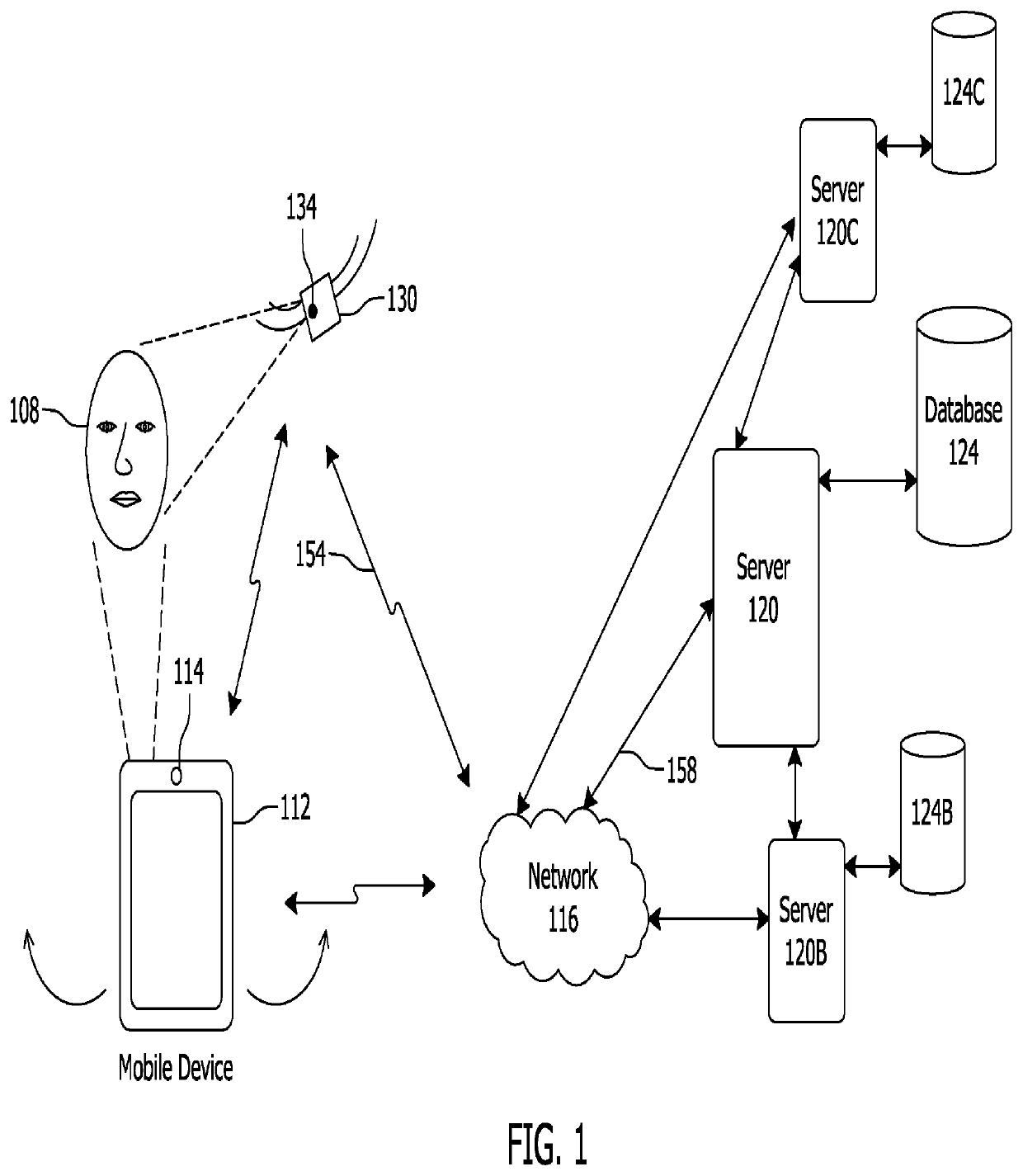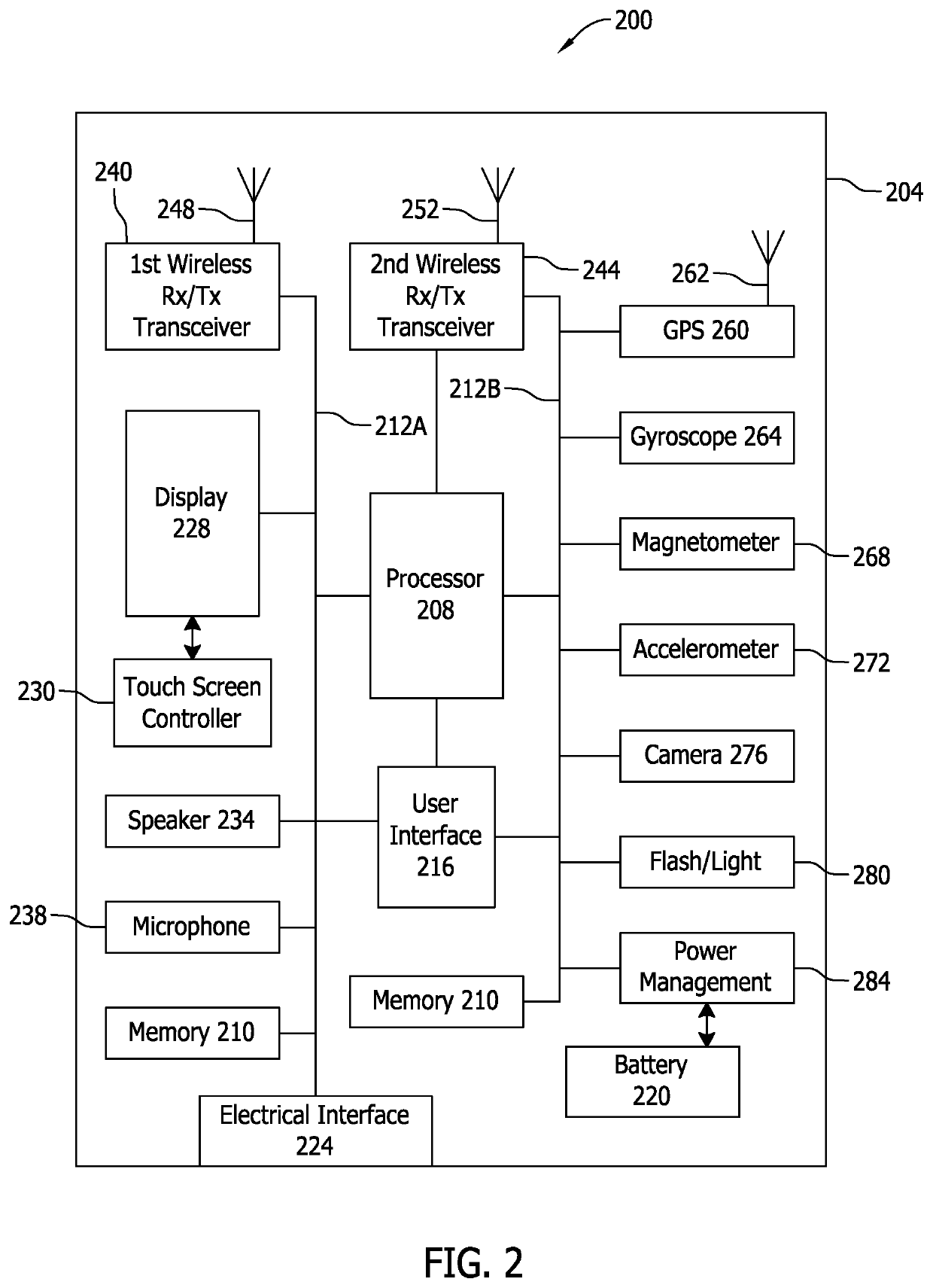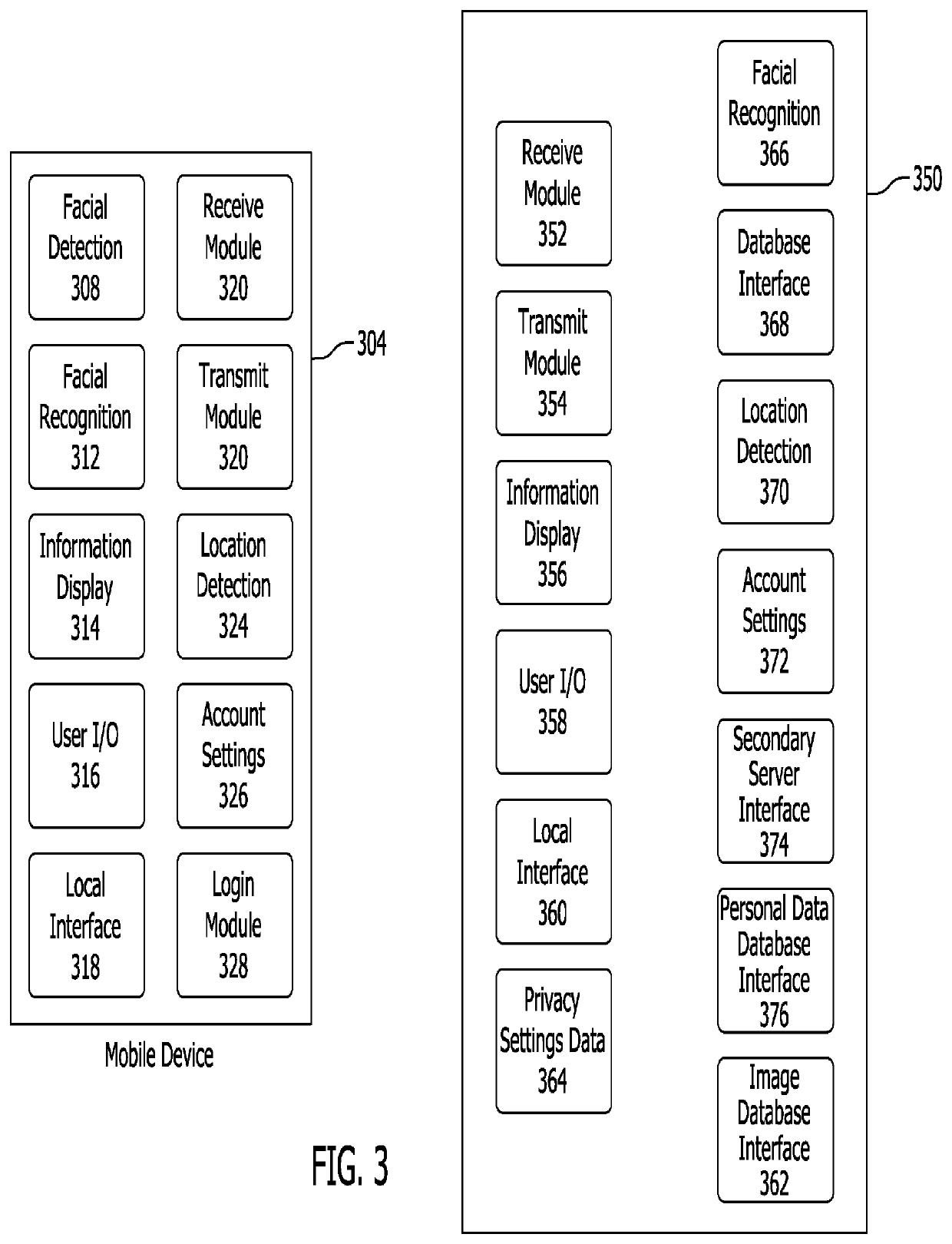Method to add remotely collected biometric images / templates to a database record of personal information
a biometric image and database technology, applied in the field of facial recognition authentication systems, can solve the problems of user decision to deactivate such cumbersome security measures, cumbersome password typing, and high cost of fingerprint systems for use on small electronic devices, and achieve the effect of enhancing the security of the system
- Summary
- Abstract
- Description
- Claims
- Application Information
AI Technical Summary
Benefits of technology
Problems solved by technology
Method used
Image
Examples
Embodiment Construction
[0066]A system and method for providing secure and convenient facial recognition authentication will be described below. The system and method may be achieved without the need for additional expensive biometric readers or systems while offering enhanced security over conventional facial recognition systems.
Facial Recognition Authentication Environment
[0067]FIG. 1 illustrates an example environment of use of the facial recognition authentication system described herein. This is but one possible environment of use and system. It is contemplated that, after reading the specification provided below in connection with the figures, one of ordinary skill in the art may arrive at different environments of use and configurations.
[0068]In this environment, a user 108 may have a mobile device 112 which may be used to access one or more of the user's accounts via authentication systems. A user 108 may have a mobile device 112 that can capture a picture of the user 108, such as an image of the u...
PUM
 Login to View More
Login to View More Abstract
Description
Claims
Application Information
 Login to View More
Login to View More - R&D
- Intellectual Property
- Life Sciences
- Materials
- Tech Scout
- Unparalleled Data Quality
- Higher Quality Content
- 60% Fewer Hallucinations
Browse by: Latest US Patents, China's latest patents, Technical Efficacy Thesaurus, Application Domain, Technology Topic, Popular Technical Reports.
© 2025 PatSnap. All rights reserved.Legal|Privacy policy|Modern Slavery Act Transparency Statement|Sitemap|About US| Contact US: help@patsnap.com



